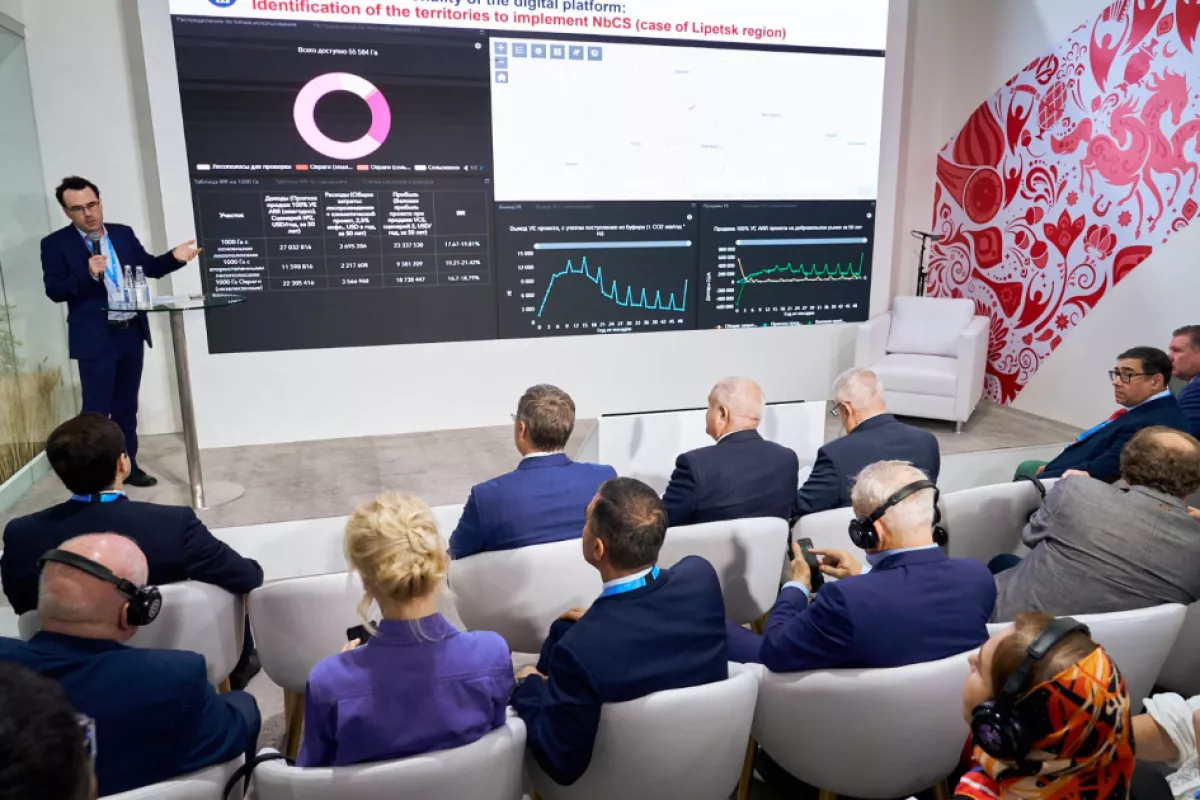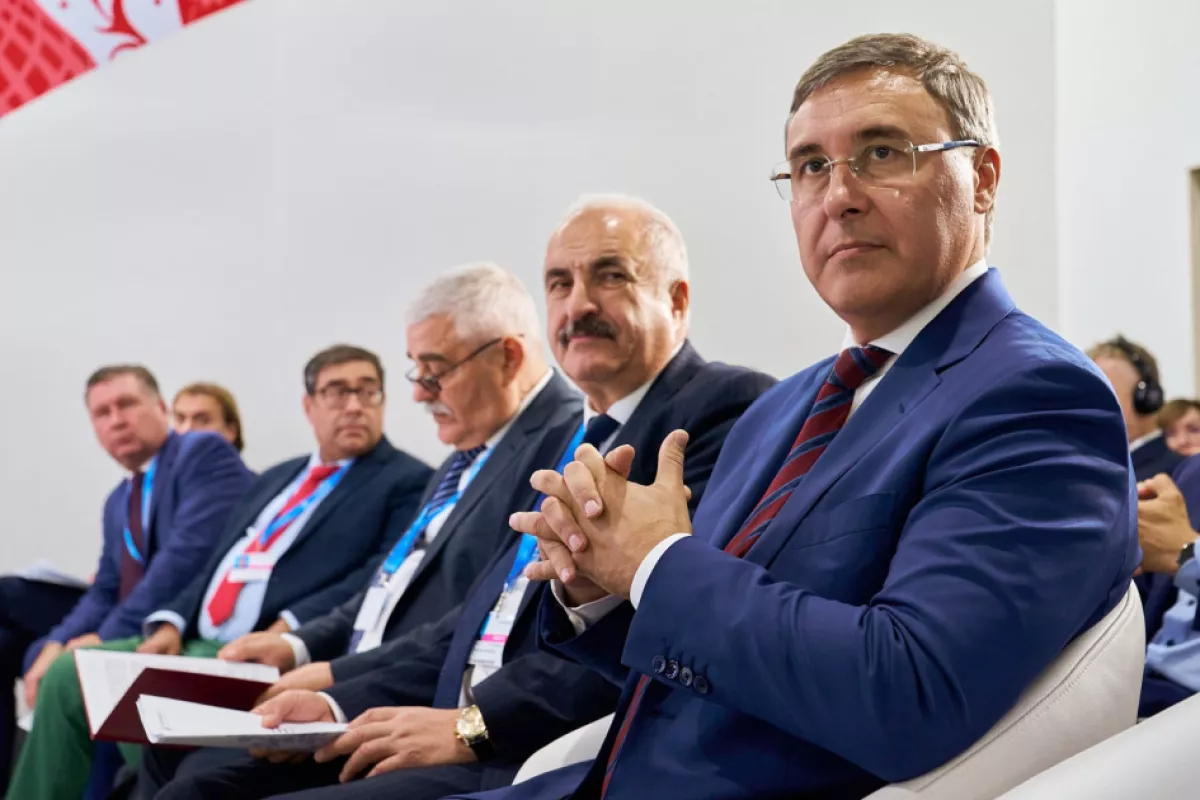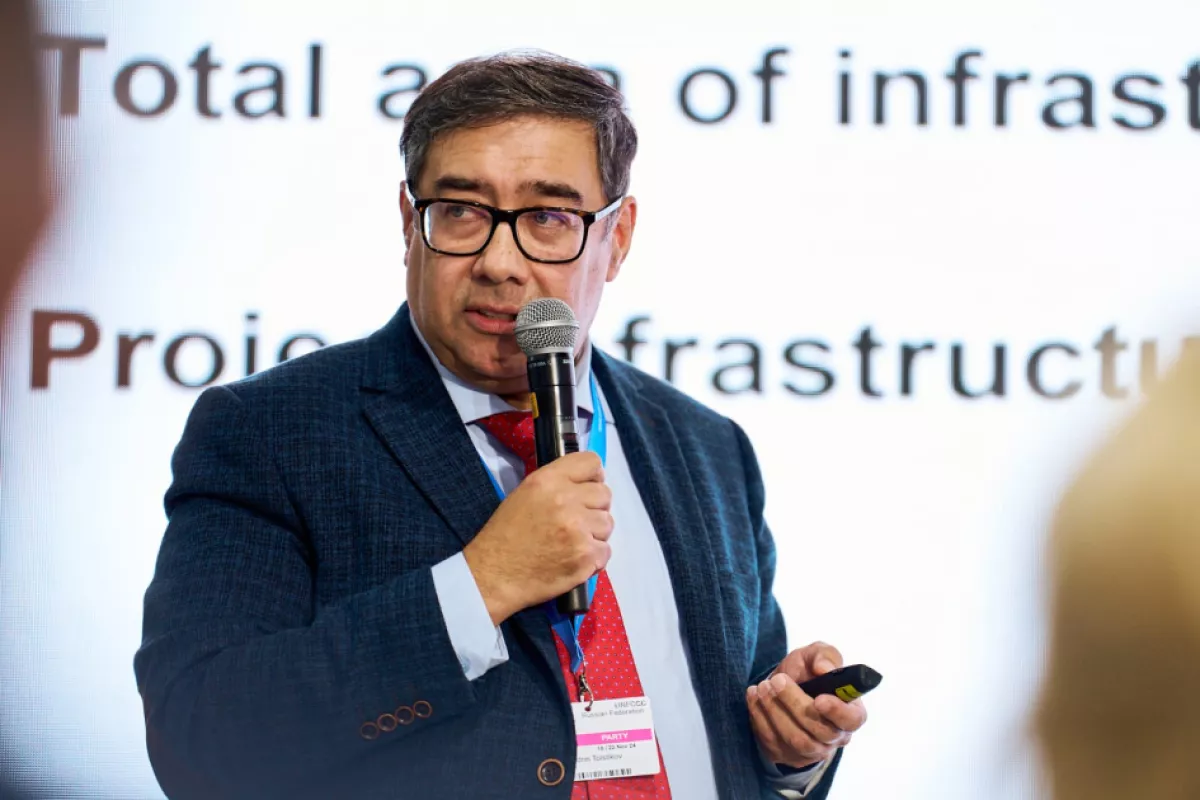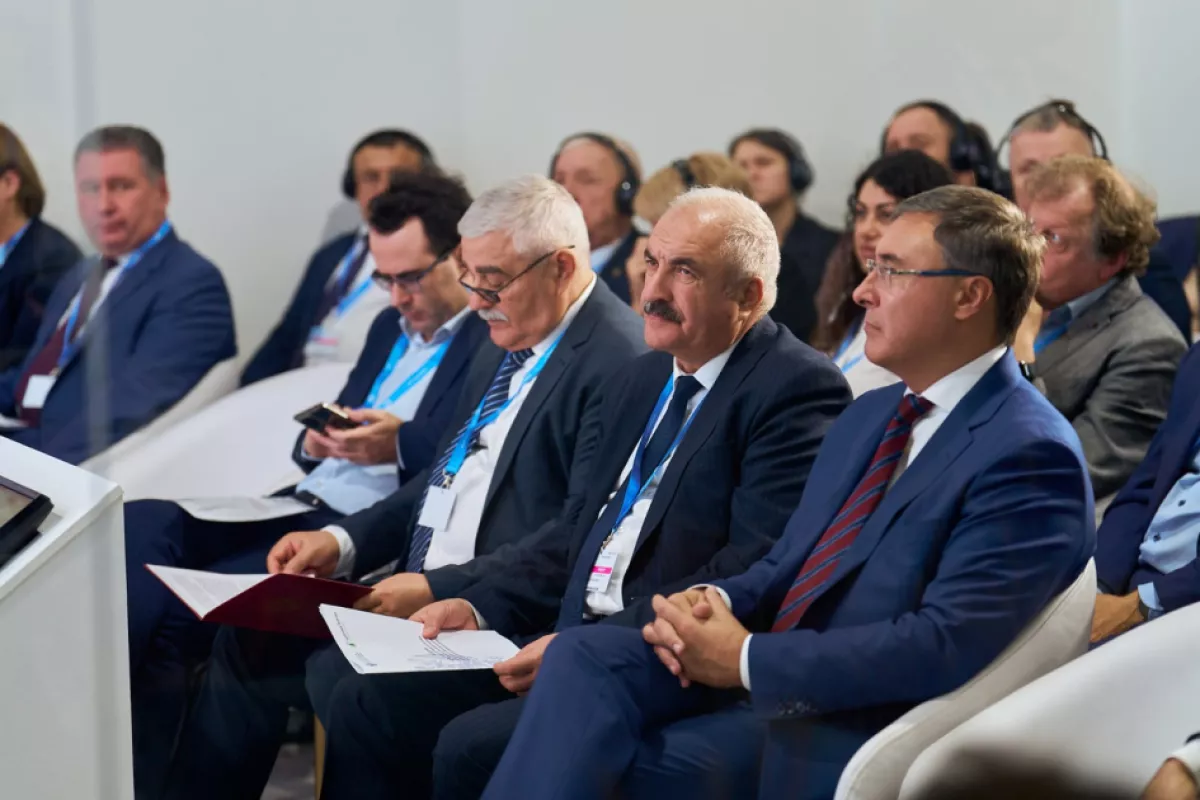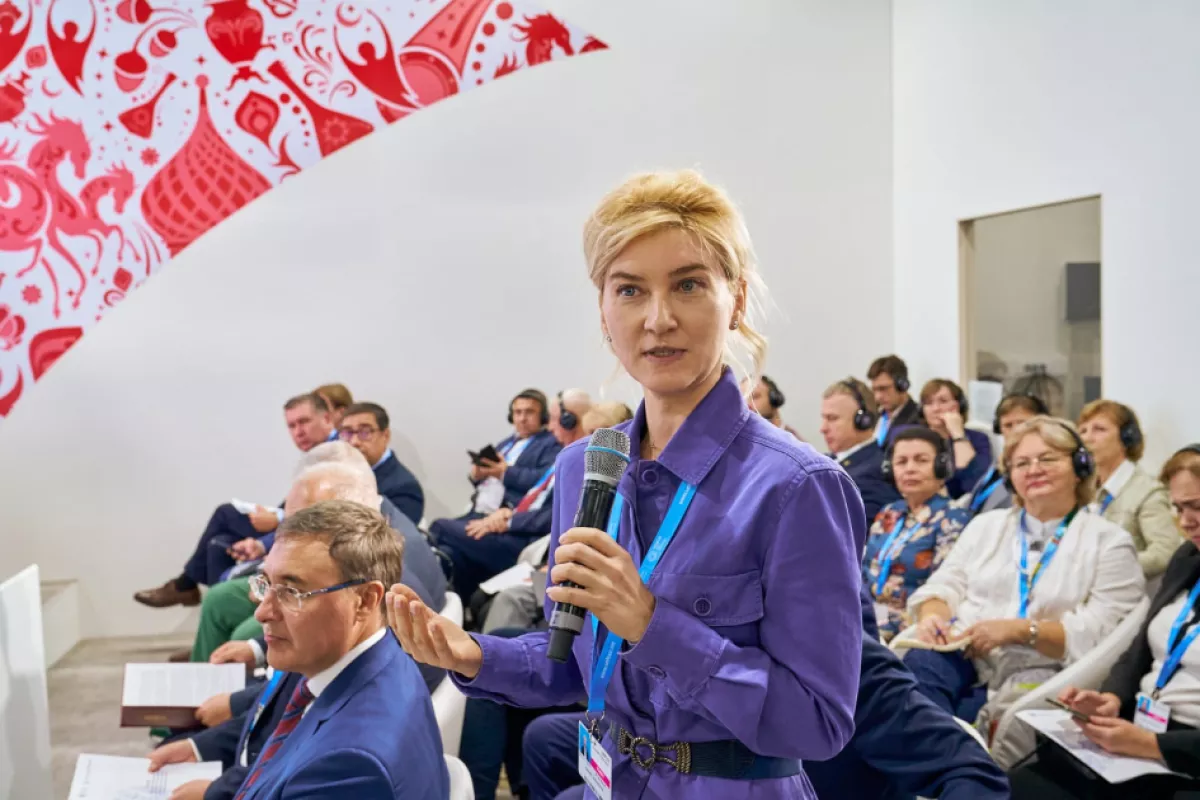COP29: Azerbaijan, Russia sign deal to establish innovative carbon polygon
On the second day of the 29th session of the Conference of the Parties to the UN Framework Convention on Climate Change (COP29) in the Blue Zone, Russia and Azerbaijan signed a memorandum on the creation of a "mirror" carbon polygon in the Kura-Araz lowland area.
The memorandum, which outlines plans for the creation of the polygon, was signed following a meeting of the Expert Council under the Russian Ministry of Science between the Federal Scientific Centre for Agroecology of the Russian Academy of Sciences (RAS) and the Forestry Agency of the Ministry of Ecology and Natural Resources of Azerbaijan, Caliber.Az reports via local media.
The Russian pavilion at COP29 hosted Science Day on November 12, which included several expert sessions. One of the sessions featured a meeting of the Expert Council on Carbon Polygons with the participation of Valery Falkov, Minister of Science and Higher Education of the Russian Federation. During the meeting, programs for the creation of "mirror" carbon polygons in Brazil, Azerbaijan, and Serbia were discussed. The primary goal of these polygons is to develop unified international monitoring protocols and verification of climate data.
"Such a polygon will be established in Azerbaijan. During the year, two relevant studies were conducted on environmental issues. Scientists have their own task and a very important one. It is important for us to prepare a serious scientific substantiation for decision-making by politicians and for this we need carbon polygons. That is why we are discussing methodologies that are used in different countries on common approaches. They should be verified, reliable, and scientifically justified so that politicians have no doubts when making a decision. Our cooperation with Azerbaijan continues," Minister Falkov said.
One of the main speakers at the session, Sergey Gulev, head of the laboratory of the Institute of Oceanology of the Russian Academy of Sciences, emphasized the significance of international cooperation: "In particular, on the initiative of the Russian Federation, we have begun to create what is called 'mirror' carbon polygons in other countries in coordination with them. In particular, in Brazil, India, Belarus, and China, which is the most important. The first carbon polygons will be considered today and will most likely be approved. South Africa is next in the plans. In fact, we all have the same problem — creating systems to monitor the flow of climatically active gases in order to understand what the balance of a given territory is. Secondly, what can be done on these types of landscapes, whether they are terrestrial or marine, to either reduce this emission or, conversely, reverse its sign to get the flux down into the soil or the ocean, to bury these volumes of carbon? And thus remove them from the atmosphere, contributing to the fulfilment of Article 6 of the Paris Agreement. Russia is on the way to this solution, and at each carbon landfill, we find interesting solutions, which we are working on further. We hope to cooperate very closely with Azerbaijan. I would like to note that an offshore carbon test site will be created very close by, in the Caspian region, on the territory of Dagestan. The Caspian Sea is very interesting in this sense; its level is falling, huge land areas are being released, and nothing has been explored in them yet," concluded Gulev.
Larisa Belan, Director of the Centre for Decarbonisation Technologies in Bashkortostan, mentioned that the carbon polygon has been operational since 2021 under a federal program, studying the ecosystem and its reactions to climate change in the region. "We are ready to cooperate with Azerbaijan with pleasure. We have something to be proud of — our polygon is equipped with the latest equipment, and we work according to methods recognized by the international community, for which we are absolutely open," she said.
Professor Marko Gutal of the University of Eastern Sarajevo pointed out that the climate changes observed today are often driven by human activity. "Our goal is to measure greenhouse gases, to compare the data obtained with other mirror polygons that are organized in Russia and beyond. Practically all over the world, it is possible to observe the situation and make recommendations that will help to cope with global problems. Our goal is to make our small contribution to the overall ecosystem."
The event continued with a question and answer session.
By Tamilla Hasanova




